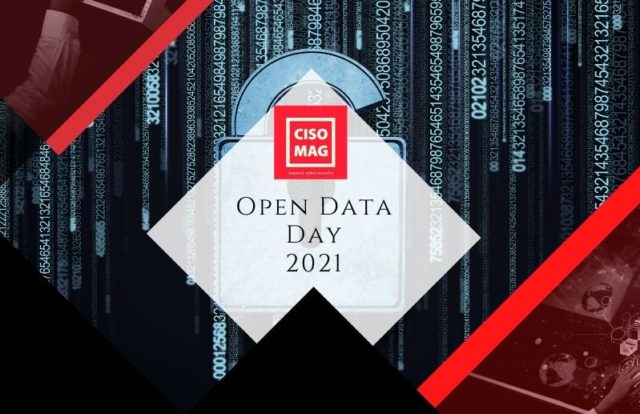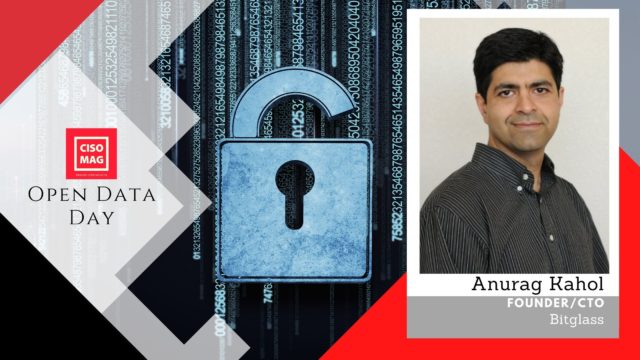
March 7, every year marks the International Open Data Day. A day that is observed to promote awareness and use of open data. Forums and groups from across the globe organize events on this day where they use open data in their communities. Open Data Day also serves as an opportunity to show the world the benefits of open data. It also encourages government, businesses, and civil society to adopt open data policies.
CISO MAG approached industry leaders to seek insight on the open data and its cybersecurity implications. Here are a few brief excerpts.
1Shepherding and expanding open datasets will be necessary

“The freedom to access and leverage public information is a categorical right for all citizens that need to be embraced and firmly upheld. Open Data Day is a day to recognize and celebrate how open datasets have increased government transparency, reshaped social initiatives, and galvanized individuals to actively partake in broader community issues. The COVID-19 pandemic has shined a light on the importance of keeping public data resources front and center, and recent cyberattacks on the U.S. federal government have further suggested that increasing disclosed intelligence may also help deter future hackers.
Public data that is easily accessible and available to the masses is a vital resource for internet users across the globe. It’s an invaluable way to educate the masses with factual information on local governments, agencies, and scientific councils, while also holding these federal entities responsible for being publicly accountable. Over time, this has helped propel economic development, fight global crises and strengthen democracy. Shepherding and expanding open datasets will be necessary to yield a more socially active and sophisticated global community.”
2It’s essential to keep valuable information available and easily accessible for everyone

“Since its inception and rise to prominence as a fundamental aspect of daily life, the internet has been a means for expanding communications and spreading knowledge across the globe. Today, almost sixty percent of the worldwide population are active internet users working, learning, researching, and communicating online. Open data day serves as an important reminder of how this platform allows the public to tap into millions of data sets across scientific, government, and non-profit organizations.
By making data readily available to the public, online participation increases along with education. Further, open data keeps online institutions honest, transparent, and accountable for having accurate information disseminated across the web. State and local leaders who release data on important issues such as the ongoing pandemic, climate, transportation, disaster response, and other critical current events inspire online consumers to take a more active role in communities. It’s essential to keep this valuable information available and easily accessible for everyone.”
3Open datasets will hold governments to a higher standard

“Open Data Day is an important occasion to celebrate and encourage online transparency, accuracy, and honesty. Open data is inherently critical to ensuring that governments, nonprofits, and public scientific entities are rightfully presenting accurate information to help educate the public. In light of the current COVID-19 pandemic, it’s never been more important to properly inform people about ongoing health and safety information. Open datasets are playing an essential role in apprising local communities about current protocols, vaccination efforts, and proper safety precautions.
The increase in open data access over the past decade has empowered citizens to collaborate and take action, enabling local communities to develop innovative new services that have bolstered initiatives in health, climate, transportation, education, and social welfare. It has also dramatically increased online and public participation for marginalized groups in less developed regions. Continuing to support and advance open datasets will hold governments to a higher standard and embolden citizens to strengthen the foundations of their communities and, as a result, society as a whole.”










